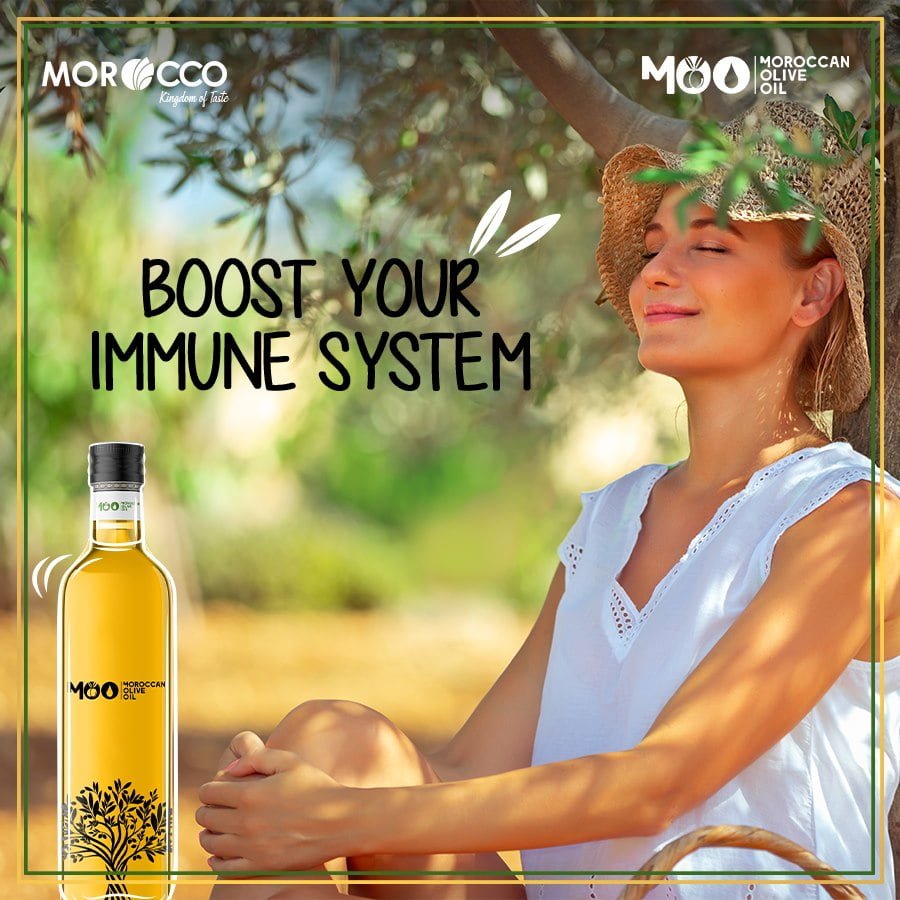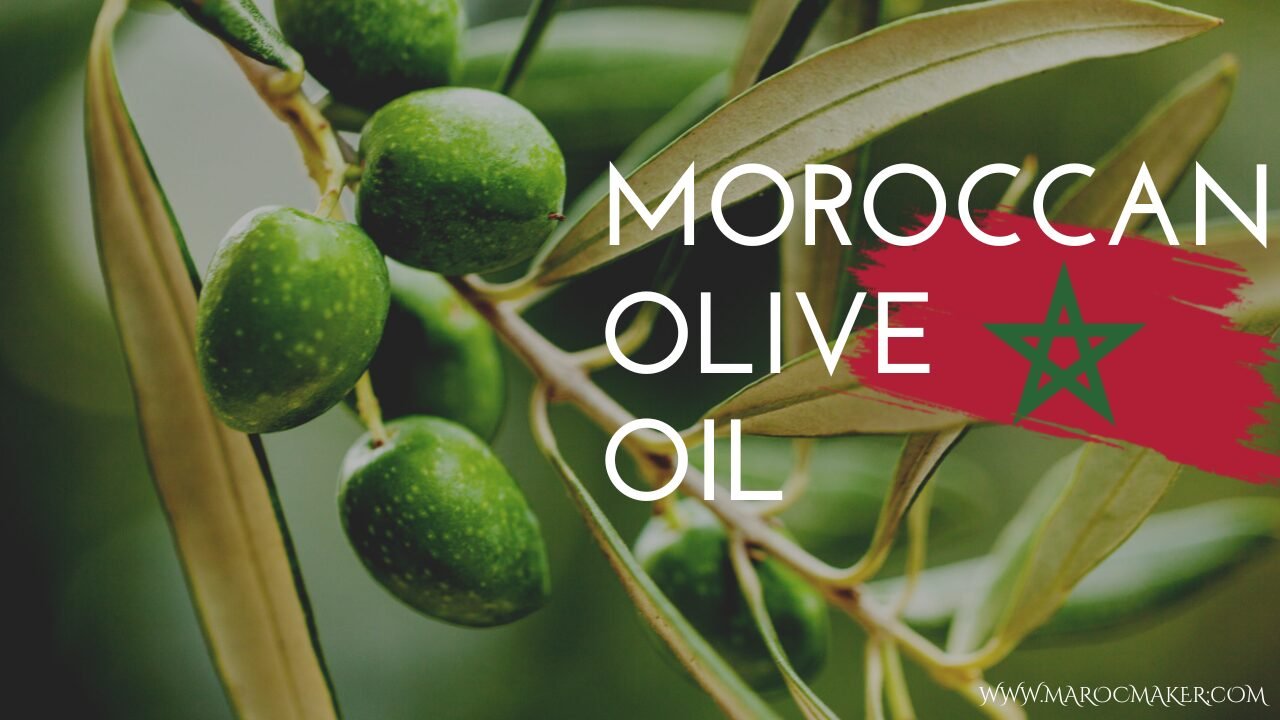Welcome to a world of flavor and wellness brought to you by Moroccan olive oil! Renowned for its rich history and exceptional quality, Moroccan olive oil offers a plethora of benefits for both your health and culinary creations. From its unique nutritional profile to its versatile applications, this liquid gold is a must-have in every kitchen.
Key Takeaways:
- Moroccan olive oil is prized for its benefits in promoting a healthy lifestyle and enhancing the flavor of various dishes.
- Its nutritional composition includes high levels of monounsaturated fats, antioxidants, vitamins, and minerals.
- Consuming Moroccan olive oil may aid in reducing the risk of heart disease, improving digestion, and enhancing skin health.
- Its culinary uses range from salad dressings and marinades to flavor enhancements in both savory and sweet dishes.
- Learning about the traditional production process and sustainable farming practices ensures you choose high-quality Moroccan olive oil.

The Nutritional Profile of Moroccan Olive Oil
Looking at nutrition, Moroccan Olive oil is a real champ. It’s packed with good fats, antioxidants, vitamins, and minerals. This oil not only enhances the taste of your meals but also provides plenty of health advantages.
Fats – Moroccan olive oil
Moroccan Olive oil is noteworthy for its rich quantity of monounsaturated fats. This beneficial fat type can lower LDL cholesterol. That’s a thumbs up for heart health and shrinks cardiovascular disease risks. Plus, it’s a steady energy supplier while promoting bodily balance.
Antioxidants

Moroccan Olive oil is brimming with antioxidants. It’s rich in vitamin E and has phenolic compounds too. These hefty antioxidants fight oxidative stress. They decrease inflammation and defend our bodies. They shield us from diseases like heart disease and diabetes, and some cancers.
Vitamins
Moroccan Olive oil is more than just a tasty addition to your meals. It’s loaded with Vitamin E! This vitamin is super important. Guess what, it’s an antioxidant! It helps keep our body’s cells safe from harm by nasty free radicals. In doing so, it boosts our health and wellness.
Minerals
Moroccan Olive oil holds traces of iron and calcium. These minerals, though slight in amount, add to our nutrition and aid vital body operations.
The Nutritional Profile
The table below provides a detailed breakdown of the nutritional composition of Moroccan Olive oil:
| Nutrient | Amount per 100g |
|---|---|
| Energy | 884 kcal |
| Fat | 100g |
| – Saturated Fat | 14g |
| – Monounsaturated Fat | 73g |
| – Polyunsaturated Fat | 10g |
| Protein | 0g |
| Carbohydrates | 0g |
| Cholesterol | 0mg |
| Vitamin E | 14.35mg |
| Calcium | 1mg |
| Iron | 0.56mg |
It’s clear that Moroccan Olive oil mostly consists of fats. Interestingly, it has many monounsaturated fats. These are actually good for our heart! Compared to other cooking oils, its lesser amounts of saturated fat and cholesterol make it a better choice.
Moroccan Olive oil isn’t just nutritious. It also provides a unique, tasty touch to many recipes. It’s a handy pick for cooking lovers and health-focused folks alike.
Health Benefits of Moroccan Olive Oil
Moroccan olive oil is valued for its dynamic flavor and adaptable cooking uses. It is recognized for its plethora of health rewards. Adding Moroccan olive oil to your meals can uplift your general health and support a nourishing life.
Reduced Risk of Heart Disease
Moroccan olive oil is excellent for your heart’s health. Why, you ask? It packs a punch with its high monounsaturated fat content. A chief one being oleic acid. This wondrous compound does a double-duty. It can cut down LDL cholesterol, also known as the bad cholesterol. At the same time, it amps up HDL cholesterol, popularly known as the good one. The result? Your heart health gets a fantastic boost. Plus, such a change can keep heart problems at bay.
Improved Digestion
Many people find Moroccan olive oil helpful for digestion. It offers a natural boost to enzyme production which aids in keeping your stomach healthy. On top of that, its antioxidant attributes can calm and shield your digestion from discomforts due to inflammation.

Potential Anti-inflammatory Effects
Research hints that Moroccan olive oil could have anti-inflammatory properties. With polyphenols and other antioxidants, the oil may minimize body inflammation. This relates to chronic conditions like arthritis and some cancers. Adding Moroccan olive oil to your meals could possibly lessen inflammation and boost your health.
Enhanced Skin Health
Moroccan olive oil does wonders, both inside your body and on your skin. The oil has antioxidants. Their job? They shield your skin from harmful stuff, like free radicals and oxidative stress. These things speed up how fast we age. But, Moroccan olive oil doesn’t stop there. It’s brimming with vitamin E, another champion for your skin. It moisturizes, nourishes, and leaves your skin glowing just like a star.
Integrating Moroccan olive oil in your everyday meals can bring about numerous health gains. It can encourage heart health, better digestion and support skin wellness. Its distinctive taste and varied uses in cooking make it an essential in any kitchen. Not only does it bring a touch of finesse to your plate, but also promotes general health.
Culinary Uses and Flavor Enhancements
Moroccan olive oil is a versatile kitchen companion. It kicks up the taste of your meals and brings a Mediterranean vibe to your cooking. No kitchen should be without this essential ingredient.
Moroccan olive oil is commonly used in cooking, especially for dressing salads. Its full, fruity taste and silky feel are an excellent match for fresh veggies and leafy greens. Just pour a good bit of olive oil on your favorite salad fixings, squeeze in some lemon juice, and dash in some sea salt. This blend creates a straightforward but incredibly tasty dressing.

Use Moroccan olive oil to add flair to your meals. It’s great for meat, fish, or veggie marinades. The oil’s full-bodied yet gently spicy taste softens proteins. It also adds a special flavor boost. Mix the oil with your favorite herbs, garlic, or spices. Let your food bathe in this powerful mix. Then grill or roast it till it’s just right.
Moroccan olive oil is a champ at boosting taste in numerous meals. It offers a bold taste that really matches roasted veggies, giving them an extra hint of depth and fullness. Before you roast your veggies, splash some olive oil on them. This results in a slight crispiness and a soft, mouthwatering texture.
Try olive oil when cooking Moroccan classics like tagines and couscous. This oil pairs well with the scented spices and herbs in Moroccan foods. It boosts the dish’s flavor, making it taste more true-to-life.
For the tastiest Moroccan olive oil, pick top-notch products. Go for extra virgin olive oil, the finest grade with least processing. This keeps the oil flavorful and nutritive.
It’s key to store Moroccan olive oil correctly to keep its taste and freshness. A cool, shadowy spot, away from sun and warmth is perfect. Don’t put it close to the cooker. Heat can mess up the oil. Follow these hints, and you’ll appreciate all Moroccan olive oil brings to the table.
| Culinary Uses of Moroccan Olive Oil | Flavor Enhancements |
|---|---|
| Salad Dressings | Roasted Vegetables |
| Marinades for Meat, Fish, and Vegetables | Traditional Moroccan Dishes |
The Production Process of Moroccan Olive Oil
Making Moroccan Olive oil needs a careful process that gives it a top-end quality and taste. Picking ripe olives and getting the oil from them is done with accuracy and skill.
1. Harvesting:
It all starts with the diligent plucking of olives straight off the tree. Expert growers pick the olives when they’re perfectly ripe, ensuring the best flavor and oil yield.
2. Sorting and Cleaning:
Once picked, the olives get sifted out to discard any spoilt fruits or leaves. They’re then cleaned well to get rid of any dirt or fuss that might mess with the oil’s goodness.
3. Crushing and Grinding:

After cleaning the olives, they’re broken down into a paste by crushing or grinding. In the past, big rocks known as “millstones” were handy for this. But, these days, oil makers often use mechanical presses for an efficient job.
4. Malaxation:
The olive paste then moves into a step called centrifugation. This spins the paste rapidly to split the oil from the water and leftover solids. It’s this part that cleans the oil and gets rid of any dirt or bits.
5. Centrifugation:
Next, the olive paste undergoes centrifugation, a process that separates the oil from the water and other solids. This step ensures the purity of the olive oil by removing any impurities or sediments.
6. Filtration:
In the end, the just-squeezed olive oil gets cleaned up, making sure all the dirt’s gone. It’s a silky and sparkling final item. To keep it fresh and top-notch, it’s stored in stainless steel tanks where the temperature’s kept just right.
Traditional vs. Modern Techniques
Morocco showcases a mix of old and new in olive oil making. Small, family-run olive mills stick to the classic ways, while big producers employ high-tech machines. This blend aids in coping with the rising need for Moroccan olive oil.

The Importance of Sustainable Farming
Keeping the earth happy is what Moroccan olive oil farmers focus on. They do this by farming in a way that’s good for the environment. No nasty chemicals or pesticides touch their olives. That means you get olive oil that’s good for you and the planet.
| Traditional Production Process | Modern Production Process |
|---|---|
| Hand-picked olives | Mechanical harvesting |
| Stone grinding with millstones | Mechanical crushing with presses |
| Slow malaxation | Faster processing time |
| Smaller-scale production | Larger-scale production |
Conclusion
To wrap up, Moroccan olive oil shines as a healthful and tasty treasure. We dove into the nutritional details of this oil, viewed its health perks, and saw how it boosts cooking flavors in this piece.
Moroccan olive oil is good for your heart. How? It has a lot of monounsaturated fats that work to shield your heart, lowering chances of heart diseases. But that’s not all. This oil also has lots of antioxidants. These fight inflammation and bring about a general sense of wellness.
Let’s talk cooking! Moroccan olive oil is a star. It’s perfect for jazzing up salads, for soaking meats, or for crowning roasted veggies. It has a subtle, but powerful taste that boosts any food it touches. Plus, the way it’s made in Morocco guarantees top-notch quality. It should be in all kitchens, hands down!
Where Can You Buy the Moroccan Olive Oil:
There is a lot of website that sell Olive Oil. You can find them in Etsy & Amazon.
You can read also the benefits of Moroccan Argan Oil.




Comments are closed